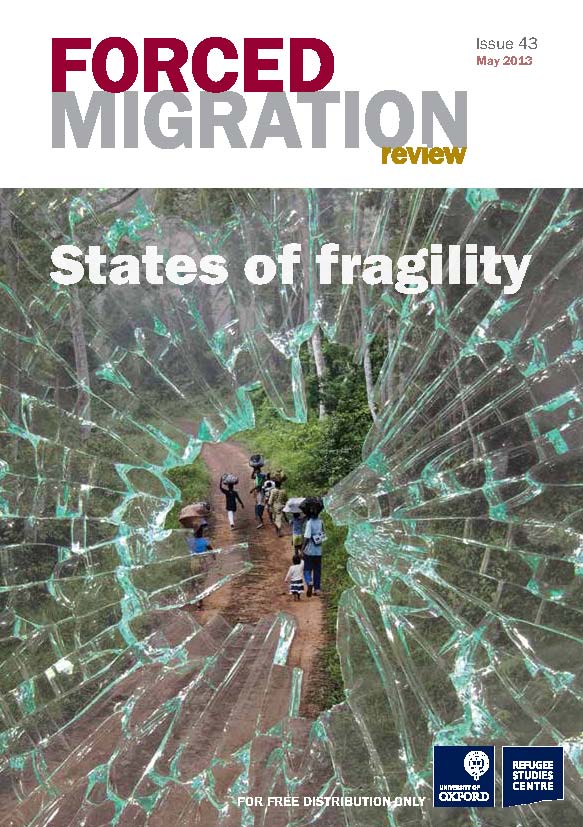The design of FMR is now A5 (half of A4). In order to print it out properly, please use your printer’s ‘Booklet’ setting.
This issue of FMR is available online in English in pdf, html and audio formats, and will be available online in French, Spanish and Arabic in html and pdf formats. It will be available in print in all four languages.
FMR43 Listing is a four-sided expanded contents listing of all articles in this issue of FMR. It provides for each article: the title, the author(s) and their affiliation, the introductory sentences and a link to the full article online. It will be available online and in print in English, French, Spanish and Arabic.
Requesting copies
If you do NOT usually receive a print copy (of FMR or FMR Listing) and would like to receive a copy for your organisation, or if you require multiple copies for distribution to partners and policy/decision makers or for use at conferences/workshops, please contact the Editors at fmr@qeh.ox.ac.uk (Please note that we prefer to provide the shorter Listing if large numbers are required for conferences and training.)
New size! This latest FMR is in A5 format – half the size of our usual FMR format. The new style FMR is lighter to carry, easier to read on mobile devices and cheaper to post. Please bear this in mind if you are printing off a copy from the website as you may wish to adjust your printer’s settings.
We encourage you to circulate or reproduce any articles in their entirety but please cite: Forced Migration Review issue 43 www.fmreview.org/fragilestates
We would like to thank Alex Betts for his assistance as special advisor on this issue. We are also very grateful to the John D and Catherine T MacArthur Foundation, the Swiss Federal Department of Foreign Affairs and the UNDP Evaluation Office for their funding support for this issue, and to all of our current institutional donors, including those who generously provide unearmarked funding for FMR.
 |
Cover image Fragility: the state of being easily broken, damaged or destroyed. From Latin fragilis, formed from the root of frangere (“to break”). |
